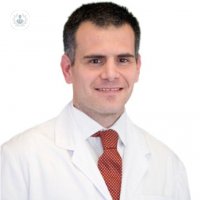Troubleshooting treatment of arrhythmias
Written by:Arrhythmias are any heart rhythm disturbance either because the pace is faster than normal (in which case they are called tachycardias) or because it goes slowed (called bradycardia).
Arrhythmias are caused by a disturbance of the heart's electrical system: Surprisingly the heart is a pump that runs on electricity. That electricity is in charge of ordering pumping. If power fails an arrhythmia so that when the number of electric pulses increases, the heart will pump more times it will occur causing tachycardia. However, if the number of pulses decreases abnormally, the lower frequency causing bradycardia.
Symptoms of arrhythmias
The symptoms are different depending on the arrhythmia is bradycardia or tachycardia.
In the first, the heart is unable to pump blood through the body. This causes fatigue, drowsiness and dizziness. In extreme cases, the blood does not reach the brain and can cause fainting. So much so, that people who suffer from fainting due to abnormally low pulsation, need to be implant a pacemaker.
Instead, the most common symptom in patients suffering from tachycardia include palpitations (sensation of blows to the chest) because the heart beats faster. According heart rate to reach tachycardia, patients may also suffer chest pain, shortness of breath or dizziness. When tachycardia reaches a very high heart rate, some people may also get to pass out.

What is the treatment of arrhythmias?
Treatment in Cardiology is totally different depending on whether the patient has bradycardia or tachycardia. Bradycardias only be treated if they cause the above symptoms. When the two conditions, low pulsation and symptoms are met, the treatment of choice is usually the implant of a pacemaker.
Instead, to slow tachycardias there antiarrhythmic drugs that can slow the heart rate heart. When drugs fail to control symptoms intervention exists called electrophysiological study ablated, with which the tachycardia is removed permanently.
How to prevent arrhythmias
In many cases arrhythmias can not be prevented. They can happen to anyone and often bear little resemblance to the lifestyle. However, some other types of arrhythmias can be favored by alcohol or stimulants like caffeine, besides stress. Although these factors often act as triggers of arrhythmia in susceptible individuals, rather than being the true cause.


